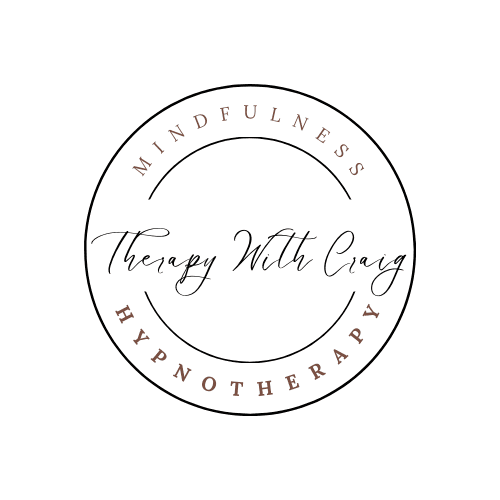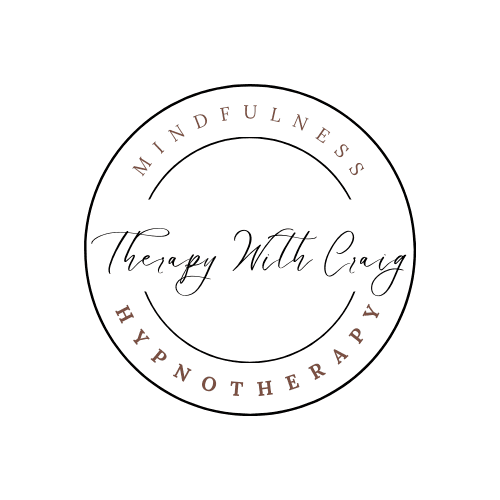Introduction – More Than “Feeling Stressed”
When people say, “I’m stressed”, it often sounds like a throwaway phrase. But what’s happening in the body is far more complex. Stress is not just in your head — it’s a whole-body response, driven by your nervous system, that changes the way you think, feel, and act.
Understanding the science of stress makes sense of why it feels so overwhelming, why simple coping tools don’t always work, and why long-term stress can silently take such a toll on health.
What Is Stress Really? (Through the Lens of Polyvagal Theory)
Your nervous system is constantly scanning the world for signs of safety or threat, it's a subconscious process called neuroception. Based on what it detects, it shifts you into different states:
- Calm & Connected (Ventral Vagal)This is your safe zone. You feel grounded, engaged, and connected. Energy is available and balanced.
- Activated (Sympathetic – Healthy Mobilisation)Here your body mobilises energy to meet a demand. Exercise, focused work, learning, creativity, even excitement all put load on the system. These are positive states, but they still use energy. Without enough recovery, healthy activation can tip into stress.
- Fight or Flight (Sympathetic – Survival Activation)When the system perceives threat or overload, sympathetic energy shifts into defence mode. Adrenaline surges, heart rate rises, and you may feel restless, anxious, or irritable. This is stress in its survival form.
- Shutdown (Dorsal Vagal)If the load becomes too heavy for too long, the system hits the brakes. Energy drops, thinking fogs, and you may feel flat or disconnected. This is the body’s way of conserving resources when it can’t sustain more activation.
All of these states are protective. The problem isn’t the states themselves; it’s when your system gets stuck in the wrong one for too long.
The Pressure Gauge – Understanding Allostatic Load
Stress isn’t only about what’s on your plate today. Your body carries a total load; what scientists call allostatic load. This is the combined weight of everything your nervous system is managing at once.
Some of that load comes from everyday stressors:
Work demands and deadlines
Family or caring responsibilities
Relationship challenges
Financial pressures
The uncertainty of living in a volatile, fast-changing world
But your system doesn’t reset to zero every morning. It also carries the weight of:
Earlier adversity or trauma – past experiences that shaped your stress responses
Long-held limiting beliefs – patterns like “I’m not good enough” or “I mustn’t fail”
Protective habits – coping mechanisms that once worked, but now add more strain
Over time, these layers build into a hidden backlog. This is why two people can face the same daily stress but experience it so differently — one is already carrying far more load than the other.
When the gauge is near its limit, even small stressors can tip you over the edge.
HRV – A Mirror of Stress and Recovery
One of the best ways to understand your nervous system’s health is by looking at heart rate variability (HRV).
HRV is not the same as your heart rate. Heart rate tells you how many times your heart beats per minute. HRV looks at the tiny differences in time between each beat. For example, even if your heart rate is 70 beats per minute, the gaps between those beats aren’t perfectly equal — and the variation tells us how adaptable your system is.
High HRV shows flexibility. Your body can move easily between states of activation and recovery. This is linked with resilience, good sleep, and energy stability.
Low HRV shows rigidity. The system is stuck, usually in a survival state, with little capacity to recover. This is linked with fatigue, tension, poor sleep, and slower healing.
The good news is that HRV can be improved. You don’t need fancy trackers (though some smartwatches and apps do measure it). Everyday practices make a difference:
Breathing slowly and deeply (especially longer exhales)
Gentle exercise or walking in nature
Prioritising good sleep
Cold water exposure or contrast showers
Practices that create genuine calm and safety – from connection with loved ones to guided hypnotherapy
These small steps improve HRV by signalling to the body that it’s safe to shift out of survival mode. Over time, this builds resilience.
Why Chronic Stress Builds Silently
One of the challenges with stress is that it builds gradually. At first it’s manageable. Then it becomes normal. Eventually, it feels like your default state. By the time burnout arrives, the system has been overloaded for months — sometimes years.
Because much of this happens below awareness, people often blame themselves: “Why can’t I just cope better?” But the truth is, their system is already carrying too much load to reset on its own.
Hypnotherapy as a Way to Re-Train the Stress Response
Most stress management tools focus on the surface — breathing exercises, distraction techniques, or quick relaxation. These can help in the moment, but often the stress bounces back once the practice ends.
That’s because much of stress is subconscious. Earlier experiences, protective beliefs, and automatic survival patterns keep the nervous system on high alert.
Hypnotherapy works by guiding the mind into a calm, focused state where those subconscious loops can finally be released and re-patterned. Instead of forcing calm, it allows the body to remember what safety feels like — and rebuild resilience from there.
From Science to Reset – Your Next Step
Understanding stress is important. But knowledge alone won’t reset an overloaded system. That’s what the 90-minute Stress Reset session is designed to do:
A conversation to map your personal stress patterns
A guided hypnotherapy reset to lower the “pressure gauge”
A clear strategy to support recovery and balance in daily life
Book Your Stress Reset Today
If stress has been building quietly in the background; leaving you anxious, restless, or exhausted - it’s time to release some of that load.
👉 Book your Stress Reset session in Colchester today and give your nervous system the reset it’s been waiting for.

